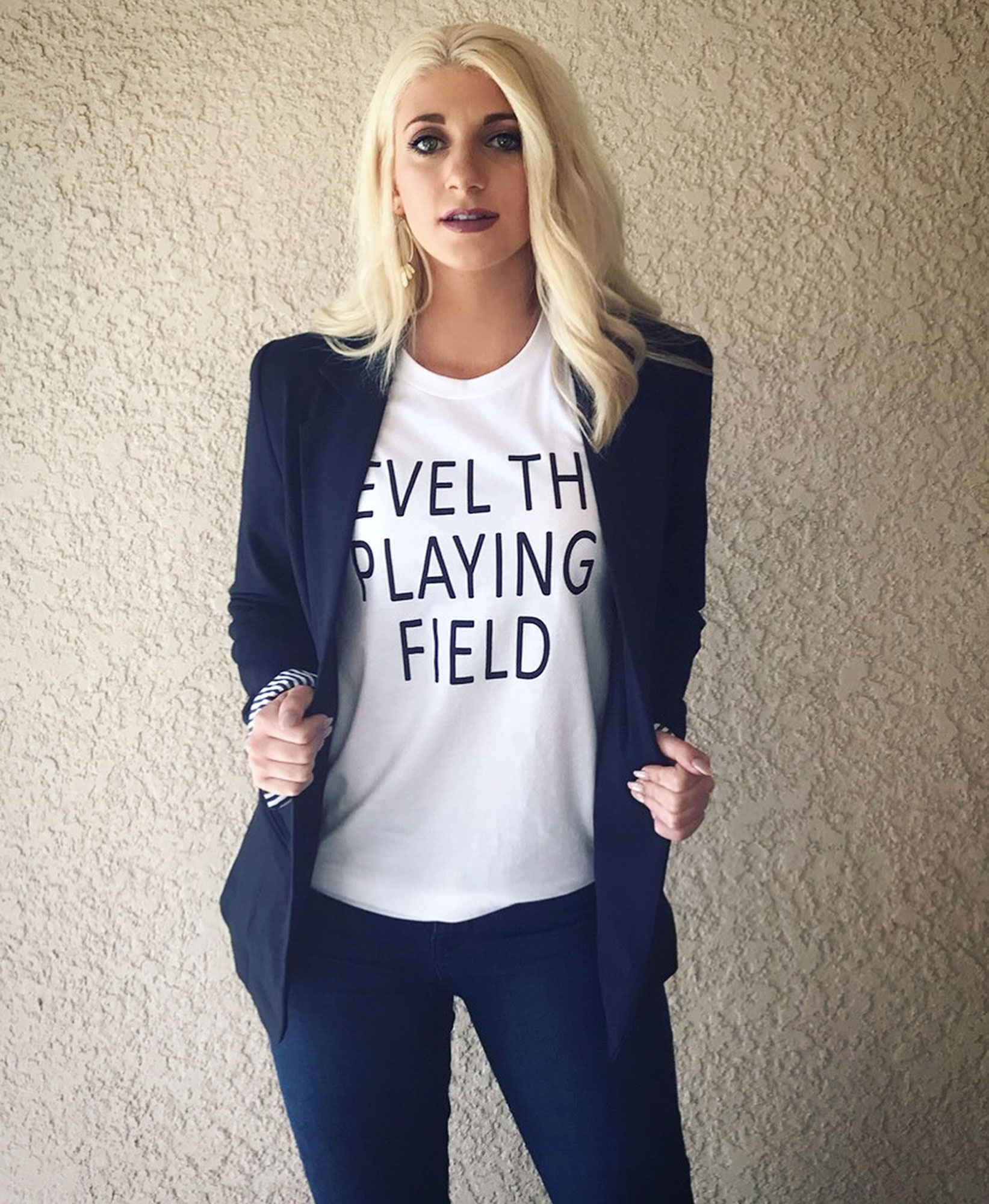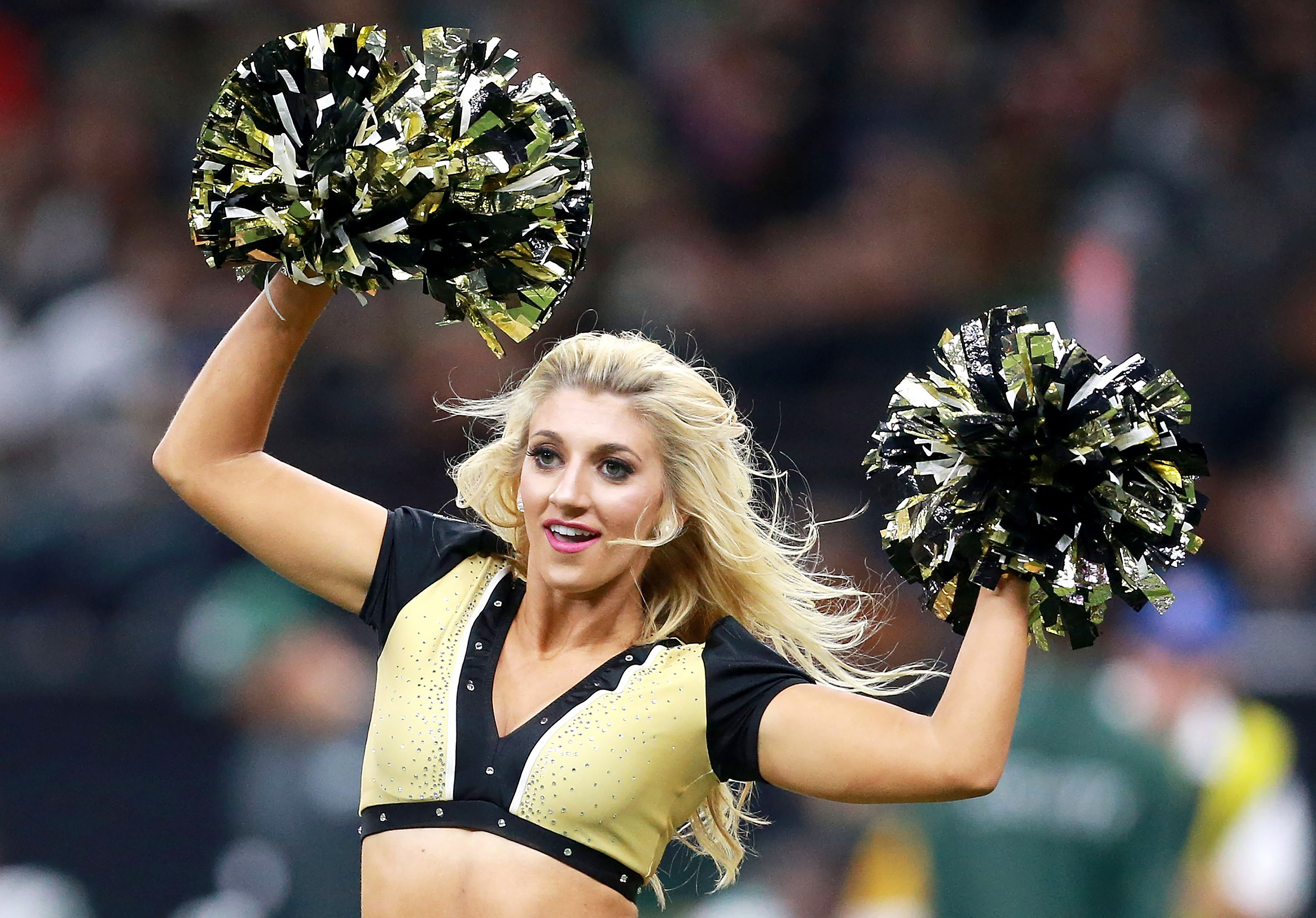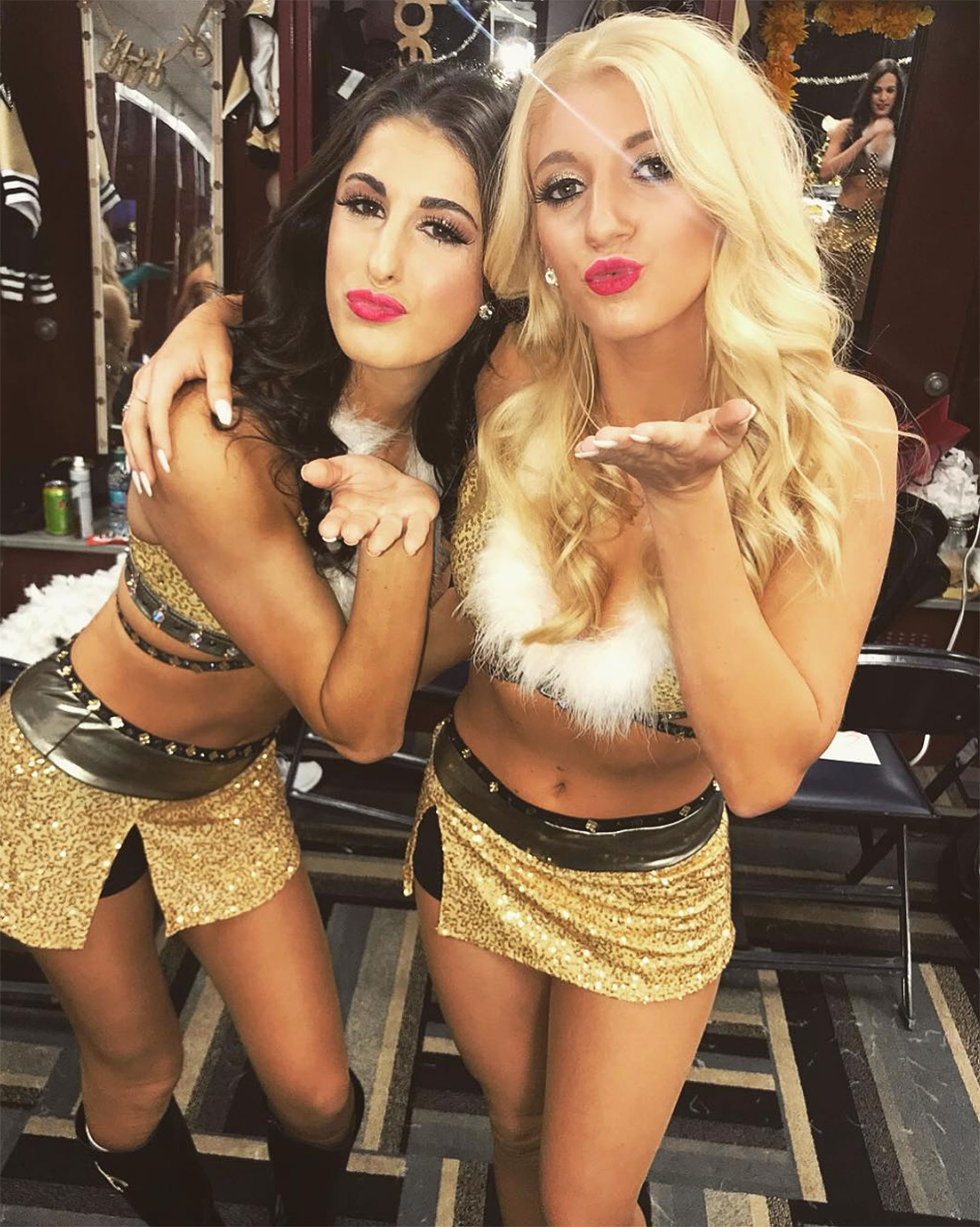Fired NFL Cheerleader Opens Up About Alleged Gender Discrimination, Hopes She ‘Empowers Other Women’
March 28, 2018Bailey Davis, a former NFL cheerleader for the New Orleans Saints, is speaking out after filing a discrimination complaint alleging she was fired for posting a photograph of herself to her private Instagram account in a lacy one-piece outfit. Now, the 22-year-old tells PEOPLE she hopes she can be a catalyst for other cheerleaders across the league to protect themselves from unjust treatment.
Davis filed a complaint with the Equal Employment Opportunity Commission (a government agency that enforces civil rights laws) claiming gender discrimination after she was fired from the Saints for violating a rule that bans cheerleaders from wearing lingerie or appearing fully or semi-nude on social media. Davis asserts that the Saints have a collection of unfair and forceful rules for their cheerleaders, known as the Saintsations, in comparison to what is expected of players.
Among these rules, cheerleaders are required to make their social media accounts private and avoid any contact with players, even going as far as leaving a restaurant if a player walks in. While members of the Saintsations must follow these guidelines or risk being penalized or fired, Davis says players do not face equal punishment if they try to contact cheerleaders.
“I was aware of the rules when I joined the team, of course, and I knew they were very strict and we had to be very careful,” Davis, who now lives in Sarasota, Florida, tells PEOPLE. “But it wasn’t until my termination that I realized the players didn’t have the same rules. It was just us.”

Courtesy Bailey Davis
RELATED: Shocking Video Shows High School Cheerleaders Being Forced Into Painful Splits by Coach
Sara Blackwell, Davis’ attorney, says she and Davis agree that there are many reasons why a player should be treated differently as a cheerleader — such as when it comes to pay — but the double-standard that’s present in the rules between cheerleaders and athletes is as offensive as it is discriminatory.
“This was so blatant, and in writing, that these written rules were so gender-discriminatory,” Sara Blackwell, Davis’ attorney, tells PEOPLE. “Another problem is it’s presented as a way to protect the women. This is not 1910, this is 2018, and in America, we don’t need our women to be hidden so they can be protected from consensual contact.”
Before posting the picture that eventually led to her firing, Davis says the team was looking into allegations that she recently went to a party with one of their players, which would have violated team rules. (She denies this occurred.)
Yet, when she posted the picture to Instagram — which isn’t viewable by any player on the Saints team since cheerleaders are required to make their accounts private and block all players — Davis says it prompted Saintsations’ senior director, Ashley Deaton, to berate Davis over text message. Deaton ended her text, according to the Times, by telling Davis, “This does not help your case. I’d expect you to know better.”
“She said the picture made me seem guilty of going around with players. In my mind, I had no idea how the two even connected,” Davis says. “I was completely offended by that statement. She said my picture was scandalous and was an advance for players, even though the players can’t even see my Instagram.”
After cheerleading with the team for three seasons, Davis was fired from the Saintsations in January.
RELATED: Fired Saints Cheerleader Details ‘Unfair’ Rules Compared to Players in Scathing Complaint
Davis says the picture she published — which she has since re-uploaded after leaving the Saints — was not intended to be sexual in nature. In fact, it wasn’t even lingerie: it was part of a Halloween costume she was using for photos to use in future dance auditions. After all, since the Saints only allow cheerleaders to stay with the team for four seasons and Davis only had a year left of eligibility, she needed to plan for the future.
“I was constantly thinking about how it’s a short time, that it isn’t permanent,” Davis says. “I had the pictures made for my dance portfolio for future auditions. In my mind, it showed off my dancer’s physique and muscle tone. That’s what I wanted to show.”
The team’s reaction to the photo is surprising, Blackwell says, since it is far less revealing than what the cheerleaders are told to wear during games.
“It was hypocritical,” Blackwell says. “They objectified them on the field, making them wear outfits that are quite more scandalous than the picture that they said led to the termination.”
Davis says the hypocrisy extends off the field, too, as photos of her in revealing positions have been used by the team on their website.
“I had no say whether that photo got posted or not,” Davis says. “Nor did I get to see it beforehand.”

Bailey Davis
Sean Gardner/Getty
If a cheerleader complained about a uniform being too short, Davis says team personnel would remind them of one thing.
“They threatened us,” she says. “They told us there are girls out there who would do this for free.”
In a statement to PEOPLE, Gregory Rouchell of Adams and Reese LLP, who serves as legal counsel for the Saints, says the team stands by their claim that they did not discriminate against Davis.
“The New Orleans Saints is an equal opportunity employer, and it denies that Ms. Davis was discriminated against because she is female,” the statement reads. “The Saints will defend these allegations in due course, and the Organization is confident that its policies and workplace rules will withstand legal scrutiny.”
As the Times notes, the NFL has been the target of multiple lawsuits over the years by cheerleaders, including the Buffalo Bills squad (known as the Buffalo Jills), which claimed they had to do jumping jacks to show officials if their “flesh jiggled.” They have since disbanded.
The NFL did not respond to PEOPLE’s request for comment.

Bailey Davis (right)
Davis says she grew up admiring the Saintsation cheerleaders from the sidelines, and imagined one day she would be on the field performing with them. She says she doesn’t regret a second of the time she spent with the team, and just two years into her twenties, Davis has begun to accept that she may never again cheerlead in the NFL. But now she’s found herself on a different field, no longer on the sidelines, as a pivotal player who may transform the landscape of cheerleading in American professional sports.
“I’m always going to pursue dancing, it’s my dream and it’s what I love to do. I don’t expect the Saints to give me my job back, and I feel, as far as NFL cheer, that chapter has closed for me,” she says. “But I do hope all of this empowers other women to come forward with issues, especially when it comes to gender discrimination, in their workplace.”
- With reporting by CHAR ADAMS
